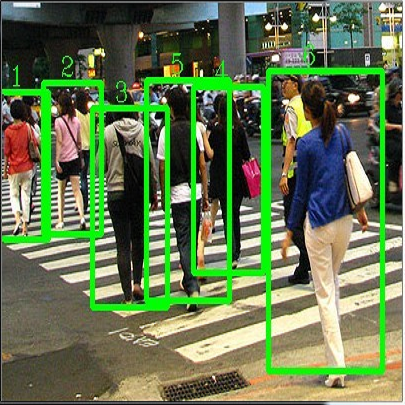Complicated underwater environments bring new challenges to object detection, such as unbalanced light conditions, low contrast, occlusion, and mimicry of aquatic organisms. Under these circumstances, the objects captured by the underwater camera will become vague, and the generic detectors often fail on these vague objects. This work aims to solve the problem from two perspectives: uncertainty modeling and hard example mining. We propose a two-stage underwater detector named boosting R-CNN, which comprises three key components. First, a new region proposal network named RetinaRPN is proposed, which provides high-quality proposals and considers objectness and IoU prediction for uncertainty to model the object prior probability. Second, the probabilistic inference pipeline is introduced to combine the first-stage prior uncertainty and the second-stage classification score to model the final detection score. Finally, we propose a new hard example mining method named boosting reweighting. Specifically, when the region proposal network miscalculates the object prior probability for a sample, boosting reweighting will increase the classification loss of the sample in the R-CNN head during training, while reducing the loss of easy samples with accurately estimated priors. Thus, a robust detection head in the second stage can be obtained. During the inference stage, the R-CNN has the capability to rectify the error of the first stage to improve the performance. Comprehensive experiments on two underwater datasets and two generic object detection datasets demonstrate the effectiveness and robustness of our method.
翻译:复杂的水下环境给物体探测带来了新的挑战,如光线条件不平衡、对比度低、封闭性和模拟水生生物等。在这种情况下,水下摄像头捕获的物体将变得模糊不清,通用探测器往往在这些模糊物体上失败。这项工作旨在从两个角度解决问题:不确定性建模和硬性样采矿。我们提议了一个名为推进R-CNN的两阶段水下探测器,由三个关键组成部分组成。首先,提议了一个名为RetinanRPN的新区域建议网络,提供高质量的建议,并审议目标性以及IoU的不确定性预测,以模拟目标的先前概率。第二,引入概率推断输油管,将第一阶段的不确定性和第二阶段的分类评分与最后检测评分结合起来。最后,我们提议了一个名为加速增量的新的硬性采矿方法。具体地说,当区域建议网络在取样前误算对象的概率时,提重力将增加R-CN头部在培训期间的标本的分类损失,同时降低总体探测结果的准确性能,从而精确地改进前阶段的检测能力。





